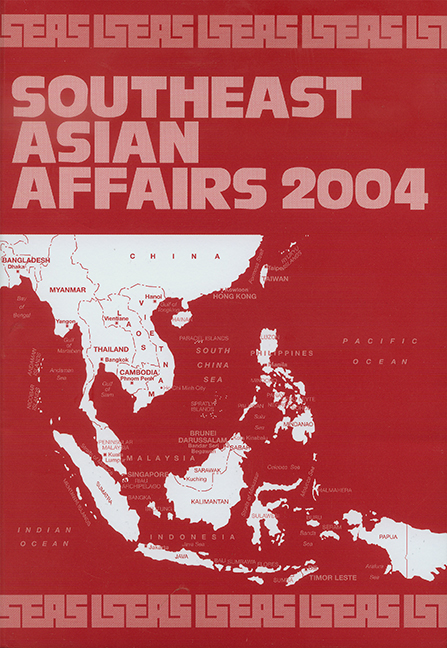Sabah and Sarawak: The More Things Change the More They Remain the Same
from MALAYSIA
Published online by Cambridge University Press: 21 October 2015
Summary
Politics in East Malaysia is different from Peninsula Malaysia — both in terms of content, motives, and rhetoric. The different history, culture, and ethnic configurations ensure that politics in both states are dictated more by local factors than the simple Malay–non-Malay; Muslim–non-Muslim dichotomy found in peninsula politics.
Sabah
The two main features of Sabah politics have been political patronage and shifting loyalties. Those in power commonly use the state's natural resources, especially the awarding of timber concessions and business opportunities to loyal supporters and financial backers, to cement political ties. Another feature has been the rapid shifting of electoral loyalty. The ruling party in Sabah usually holds office for roughly a decade before being rejected by the voters. In the 1970s Sabah politics was dominated by Mustapha Harun and his party, the United Sabah National Organisation (USNO). Mustapha ruled Sabah as an autocrat from 1967 to 1975 before he was rejected by the electorate in favour of “Berjaya” also known by its full name as Parti Bersatu Rakyat Jelata Sabah (Peoples Racially-United Front of Sabah). Berjaya's rule lasted until 1985, when it was dislodged by Parti Besatu Sabah (PBS, or Sabah Unity Party). The PBS government lasted until 1994, when defections caused its downfall. Since then, Sabah has been ruled by a Barisan Nasional (BN) coalition. The predominant ethnic group in Sabah is the Kadazan-Dusun (18.4 per cent), followed by Bajau (17.3 per cent), and Malays (15.3 per cent). The Chinese constitute only about 11 per cent of the population.
Coalition Pains
The year 2003 started with the replacement of six community development leaders by representatives of PBS which rejoined the Sabah BN the previous year but did not get any political posts in government for a year as part of its rehabilitation process. The PBS-6 replaced United Pasok Kadazandusun Murut Organisation (UPKO) and Parti Bersatu Rakyat Sabah (PBRS) representatives. All three parties — PBS, UPKO, and PBRS claim to represent Kadazan-Dusun political interests and the move to appoint PBS representatives caused ripples within the coalition.
- Type
- Chapter
- Information
- Southeast Asian Affairs 2004 , pp. 156 - 168Publisher: ISEAS–Yusof Ishak InstitutePrint publication year: 2004

